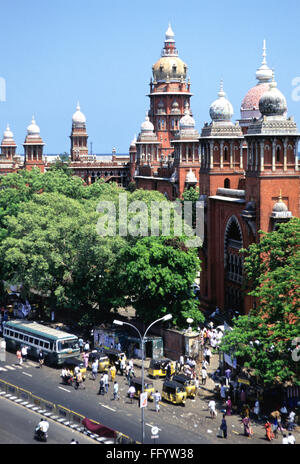Simply downloading or viewing child pornography on a personal electronic device is not considered an offense under the Protection of Child from Sexual Offences (POCSO) Act and the Information Technology (IT) Act, according to a recent ruling by the Madras High Court. Justice N Anand Venkatesh dismissed the legal proceedings initiated against an individual named S Harish. Harish had faced charges under the POCSO Act and the IT Act for downloading and watching two child pornography videos on his mobile phone.
At the end of the verdict, the Court also highlighted the rise in porn addiction among the youth. Calling for a measured approach to deal with the issue, Justice Venkatesh said,
“The Generation Z Children are grappling with this serious problem and instead of damning and punishing them, the society must be mature enough to properly advice and educate them and try to counsel them to get rid of that addiction.”
The High Court observed that Harish acknowledged having a pornography addiction but asserted that he had never viewed child pornography. Additionally, the Court highlighted that Harish had not engaged in sharing or distributing any pornographic videos, a crucial element required to establish an offense under the two Acts.
The Court also recorded that Harish had volunteered to undergo counselling to get rid of such addiction.
“To make out an offence under Section 14(1) of Protection of Child from Sexual Offences Act, 2012, a child or children must have been used for pornography purposes. This would mean that the accused person should have used the child for pornographic purposes. Even assuming that the accused person had watched child pornography video, that strictly will not fall within the scope of Section 14(1) of Protection of Child from Sexual Offences Act, 2012…
…In order to constitute an offence under Section 67-B of Information Technology Act, 2000, the accused person must have published, transmitted, created material depicting children in sexual explicit act or conduct. A careful reading of this provision does not make watching a child pornography, per se, an offence under Section 67-B of Information Technology Act, 2000,” the High Court said.
Referring to a judgment from the Kerala High Court, the judge emphasized that the commission of an offense under Section 292 of the Indian Penal Code (related to the sale or distribution of obscene material) only occurs when an individual attempts to circulate, distribute, or publicly exhibit such videos.
On a parting note, the Court lamented the rise in porn addiction among the youth, observing,
“There used to be addiction in smoking, drinking, etc. and there is a growing rise in addiction watching porn photos/videos. This, is in view of the fact that it is easily available in the electronic gadgets and by repeatedly watching the same, it becomes a habit and ultimately, the person gets addicted.”



